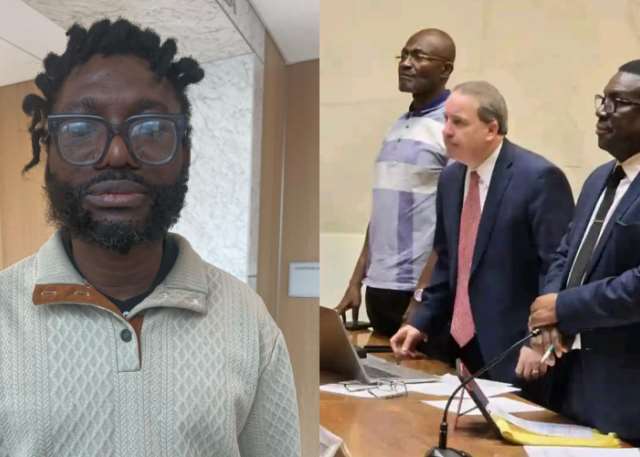A jury in Essex County, New Jersey, rendered the verdict.
Case Background
On May 17, 2022, a lawsuit was initiated in the Essex County Superior Court, alleging that Kennedy Agyapong and media figure Frederick Asamoah made defamatory remarks about Anas during an episode of The Daddy Fred Show.
During the broadcast, Agyapong purportedly made numerous harmful and untrue allegations, including accusations that Anas was a criminal, a thief, and implicated in the murder of investigative journalist Ahmed Suale.
Legal Proceedings in New Jersey
In New Jersey, court proceedings overseen by Judge Jeffrey B. Beacham featured testimonies from Kennedy Agyapong and his brother, Ralph Agyapong. Similar to the case in Ghana, Agyapong sought to present audiovisual evidence titled “Who Watches the Watchman” and referenced the ruling from the Ghanaian court in his defense. Nevertheless, the jury unanimously found against him, delivering an 8-0 verdict on all charges. Anas’ legal team, led by attorney Andrew Deheer, effectively demonstrated that Agyapong’s claims were both false and defamatory.
Connection to Ahmed Suale’s Murder
Ahmed Suale, a pivotal member of Anas’ investigative team, was murdered in 2019 after the release of the documentary Number 12, which revealed corruption within Ghanaian football. His assassination sent shockwaves throughout the country and raised significant concerns regarding the safety of investigative journalists in Ghana.
The court documents detailed specific allegations made by Agyapong, which included:
Incorrectly asserting that Anas had been convicted of crimes in Ghana, accusing Anas of being involved in Ahmed Suale’s murder, claiming that Anas was responsible for the deaths of several Chinese nationals in Ghana, and branding Anas as a thief.
Anas’ Reaction to the Court’s Decision
In the wake of the court’s decision, Anas issued a statement reflecting his feelings of vindication and resolve:
“Today, I stand before you filled with a deep sense of vindication and determination. Yesterday, the Essex County Superior Court in New Jersey saw an eight-member jury reach a unanimous verdict, holding Kennedy Agyapong—former member of the Ghanaian Parliament—liable for defamation and awarding damages amounting to 18 million U.S. dollars.”
Anas highlighted that this ruling represents a victory not only for him but also for the broader struggle against misinformation and character attacks in democratic societies. He noted the difficulties associated with proving defamation in the United States, asserting that the jury’s unanimous decision underscored Agyapong’s malicious intent.
A Comparison of Justice: Ghana and the U.S.
Anas drew a parallel between his legal experience in the United States and his previous encounter in Ghana, where a similar defamation case was dismissed in 2018. He expressed his disappointment regarding the ruling by Justice Eric Baah of the Accra High Court, who decided against him despite Agyapong’s admission of insufficient evidence for his allegations.
He stated, “Unfortunately, the circumstances in Ghana were markedly different. In 2018, when I sought justice through a similar lawsuit, I was denied. Even though Mr. Agyapong acknowledged his lack of evidence to back his defamatory claims, Justice Eric Baah not only failed to deliver justice but also wrongfully depicted me—the civil plaintiff—as a criminal.”
Anas referenced Supreme Court Justice Kulendi’s criticism of the Ghanaian ruling, labeling it a “violent abuse of judicial authority.”
See more: Trump to host top US oil chief executives as trade wars loom
“This ruling was subsequently condemned by Supreme Court Justice Kulendi, who characterized it as a ‘violent abuse of judicial authority.’ Such decisions serve as a stark reminder of the systemic issues plaguing our Ghanaian judicial system—issues that urgently require reform,” he concluded.



